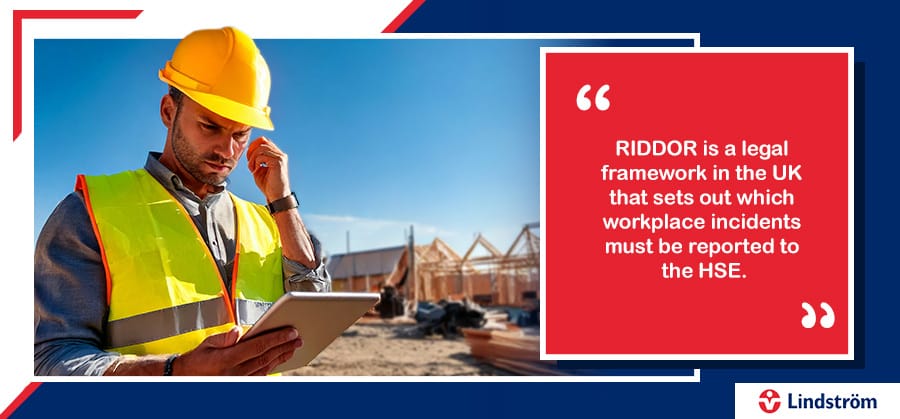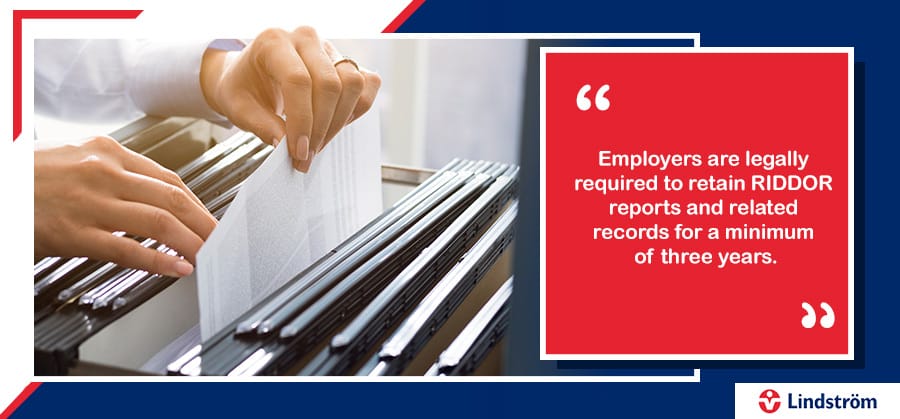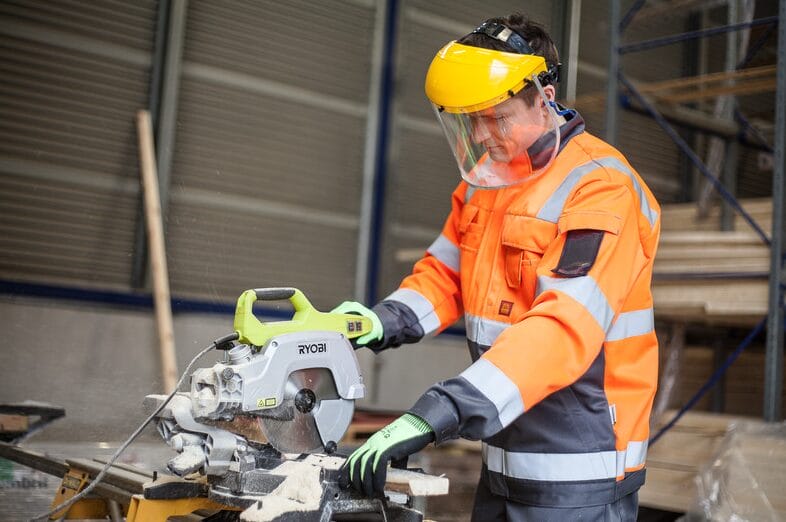
RIDDOR: The Ultimate Guide to Incident Reporting in the Workplace
If you’re responsible for workplace safety in the UK, understanding RIDDOR is essential. From what it stands for to how to submit a report and avoid penalties, this guide covers everything you need to know to stay compliant and protect your team.
What Does RIDDOR Stand For?
RIDDOR stands for the Reporting of Injuries, Diseases and Dangerous Occurrences Regulations.
Introduced in 2013 and enforced by the Health and Safety Executive (HSE), these regulations require employers, self-employed individuals, and people in control of work premises to report specific serious workplace incidents.

What Is RIDDOR?
RIDDOR is a legal framework in the UK that sets out which workplace incidents must be reported to the HSE.
These include injuries, illnesses, dangerous occurrences, and fatalities that arise from work-related activities. The regulations aim to improve workplace safety through mandatory transparency and monitoring.
What Must Be Reported Under RIDDOR?
Under the current regulations, the following categories must be reported:
1. Work-Related Deaths
Any fatality that results from a workplace accident or activity.
2. Specified Injuries
Examples include:
- Fractures (excluding fingers and toes)
- Amputations
- Eye injuries or loss of sight
- Serious burns or internal injuries
- Crush injuries leading to organ damage
- Unconsciousness due to head injury
3. Over-Seven-Day Injuries
When an employee cannot perform their normal work duties for more than seven consecutive days following an accident.
4. Occupational Diseases
These are illnesses caused or worsened by work conditions, such as:
- Occupational asthma
- Carpal tunnel syndrome
- Hand-arm vibration syndrome (HAVS)
- Dermatitis
- Work-related cancer or infections
5. Dangerous Occurrences
These are near-miss incidents that could have caused serious harm. Examples include:
- Collapse of lifting equipment
- Explosions or electrical fires
- Uncontrolled release of hazardous substances
6. Gas Incidents
Includes injury or danger caused by gas leaks or faulty appliances. These incidents are typically reported by registered gas engineers.
What Is Not Reportable Under RIDDOR?
Not every incident needs to be reported. The following are not RIDDOR reportable:
- Minor injuries such as cuts or bruises
- Fatigue or stress without formal diagnosis
- Illnesses unrelated to work activities
- Slips or trips with no resulting injury
- Near misses that do not meet the HSE’s dangerous occurrence criteria
How Long Do You Have to Report a RIDDOR Incident?
There are specific timeframes for submitting a RIDDOR report:
- Deaths and major injuries must be reported without delay
- Over-seven-day injuries must be reported within 15 days of the incident
- Cases of disease should be reported as soon as they are diagnosed
- Dangerous occurrences must be reported immediately or as soon as possible
All RIDDOR reports should be submitted via the HSE’s online portal, unless the incident is urgent, in which case it may be reported by phone.

Penalties for Non-Compliance with RIDDOR
Failure to comply with RIDDOR is a criminal offence. If a business or individual fails to report a qualifying incident or falsifies a report, they may face:
- Unlimited fines if convicted in the Crown Court
- Fines up to £400 in Magistrates’ Court for less serious offences
- Enforcement notices from the HSE requiring corrective action
- Potential damage to business reputation and loss of contracts
Maintaining accurate records and submitting reports on time is essential to avoiding legal consequences and ensuring accountability.
Who Is Responsible for Reporting RIDDOR Incidents?
Responsibility for reporting depends on the workplace setup:
- Employers must report incidents affecting their employees
- Self-employed workers report their own incidents if working on another’s premises
- People in control of work premises, such as site managers or building operators, may also carry the duty
- Gas engineers are required to report gas-related incidents
How to Report a RIDDOR Incident
Follow these steps to report an incident:
- Visit the official HSE RIDDOR page
- Choose the appropriate online form
- Complete all required details about the incident
- Submit the report and download a copy for your records
- Record the incident internally in your company’s health and safety log

How Long Should RIDDOR Records Be Kept?
Employers are legally required to retain RIDDOR reports and related records for a minimum of three years. Best practice in higher-risk industries is to keep these records for up to five years, especially if insurance claims or legal proceedings are likely.
Records should include:
- The date and time of the incident
- Names and roles of individuals involved
- A clear description of what happened
- Steps taken after the incident
- A copy or reference number for the submitted report
How Lindström Helps Reduce RIDDOR Incidents
At Lindström, we support your workplace safety strategy with managed workwear rental services designed to minimise preventable accidents and incidents.
Our PPE-compliant garments help reduce the risk of:
- Burns and fire-related injuries
- Visibility-related accidents
- Exposure to hazardous substances
- Protection against Chemical Splash
- Slips, trips and contact-based injuries
We offer industry-specific solutions including:
All garments are laundered, inspected, and replaced regularly to ensure safety compliance.
Final Thoughts
Understanding and complying with RIDDOR is a legal and moral responsibility. Accurate reporting supports safer workplaces and protects both employees and employers from avoidable risks.
With Lindström’s support, you can reduce the likelihood of RIDDOR-reportable events through quality workwear and streamlined safety systems.
Contact us today to learn how we can help make your workplace safer and more compliant.




